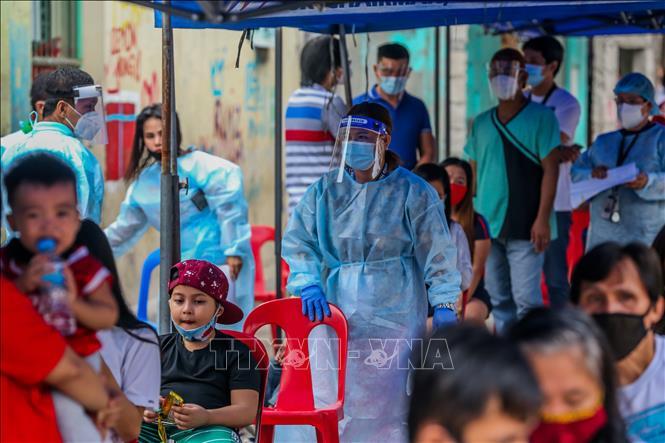ASEAN leaders pledged to continue their efforts to maintain the momentum of ASEAN Community building, ensure the full and effective implementation of the ASEAN Community Vision 2025.
They also committed to strengthen solidarity and unity, and maintain ASEAN's central role in an open, transparent, tolerant, rules-based regional structure that contributes to regional peace, security and stability.
They agreed to strengthen economic integration, regional connectivity, enhance ASEAN identity and the efficiency of ASEAN apparatus and organization, and ASEAN’s resilience and capacity to adapt to rapid changes in regional and global situations.
In terms of politics and security, ASEAN leaders reaffirmed their commitment to maintaining Southeast Asia as a region of peace, security, neutrality and stability as well as promoting regional values of peace in accordance with International law; and peacefully settling disputes, including full respect for legal and diplomatic processes, not threatening or using force, in accordance with widely recognized principles of international law, including the United Nations Convention on the Law of the Sea (UNCLOS) 1982.
 |
|
ASEAN has strongly committed to enhancing collective efforts to effectively respond to emerging challenges, and to address threats from the Covid-19 pandemic.
|
ASEAN leaders highlighted the importance of maintaining an open, transparent, rules-based and inclusive regional architecture with ASEAN as central.
They agreed to continue focusing collaborative efforts to improve capacity to handle non-traditional security challenges, including terrorism, transnational crime, cybersecurity, maritime cooperation, diplomatic and defense cooperation, and to increase preventive diplomacy.
Economically, although affirming worries about an unprecedented recession in 2020 due to the Covid-19 pandemic, ASEAN has maintained strong macroeconomic foundations and has committed to cooperation in minimizing economic impacts from the Covid-19 pandemic, keeping the market open and continuing to build the region's overall resilience and competitiveness, towards a rapid recovery in 2021.
They praised ASEAN for achieving encouraging results in the implementation of 13 priority economic goals in the ASEAN 2020 in line with three strategic directions.
ASEAN has continued to promote cooperation on ASEAN digitalization, adapt to the Industrial Revolution 4.0, strengthen connectivity and maintain supply chains, especially in the context of post-Covid-19 recovery, facilitate trade, services, investment, sub-regional development, and inclusive sustainable economic development, and, in particular, has succeeded in promoting the signing of the Regional Comprehensive Economic Partnership (RCEP) on the occasion of the ASEAN Summit 37th.
In terms of culture and society, ASEAN leaders affirmed to continue promoting cooperation towards the people and ensuring social security for the people, especially highlighting efforts to overcome Covid-19's consequences, promoting recovery, with priority given to disadvantaged groups such as supporting people with disabilities, protecting children, promoting gender equality, and supporting migrant workers and the aging population in the context of the pandemic.
Cooperation efforts between ASEAN and China to negotiate the COC
Regarding external relations, ASEAN leaders welcomed partners to continue affirming respect for ASEAN's central role with an open, transparent, inclusive and rules-based regional structure, offering many specific commitments to support ASEAN to build the ASEAN Community.
ASEAN leaders agreed on efforts for disease response and post-pandemic recovery, including a specific financial commitment to the ASEAN Fund for Covid-19 response and contribution to the Regional Medical Material Reserve and ASEAN Center for responding to emerging public health emergencies and epidemics, and implementation of the ASEAN Comprehensive Recovery Framework.
ASEAN recognized the growing interest of regional organizations and countries outside the region in promoting stronger cooperation with ASEAN, including through proposals to establish formal partnerships with ASEAN and consider ASEAN's criteria and comprehensive approach to the implementation of external relations.
ASEAN officially recognized France and Italy as ASEAN development partners, noted the case of the UK, and adopted the next five-year Action Plans (2021-2025) with a number of partners. Previously, ASEAN also agreed to expand the Treaty of Amity and Cooperation in Southeast Asia (TAC) for the participation of Cuba, Colombia and South Africa, bringing the total number of members to 43.
On international and regional issues, ASEAN leaders pledged to continue to promote cooperation for peace, security and stability in the region, in the context of a volatile strategic environment, affirming that ASEAN will continue to show higher proactivity, central role, and resilience.
ASEAN leaders emphasized the importance of peace, stability, security, safety and freedom of navigation and overflight in the East Sea to the region, and expressed concern over developments and actions that seriously eroded trust, increased tension, harmed peace, security, and stability in the region.
They emphasized the need to comply with international laws, including the UNCLOS 1982, self-restraint, not militarization, without activities that complicate the situation or increase disputes; and peaceful settlement of disputes in accordance with international law, including UNCLOS 1982.
ASEAN leaders welcomed cooperation efforts between ASEAN and China and efforts to negotiate a Code of Conduct in the East Sea (COC) in the context of the Covid-19 pandemic; and stressed the need to create a favorable environment for COC negotiations, the importance of confidence-building and preventive measures, as well as the importance of practical cooperation for mutual benefit.
They emphasized the need to fully and effectively implement the Declaration on the Conduct of Parties in the East Sea (DOC), towards achieving a substantive, effective and consistent COC in accordance with international law, including UNCLOS 1982. They affirmed that UNCLOS 1982 is the only basis for defining rights at sea, sovereignty, jurisdiction and legitimate interest at sea, and UNCLOS 1982 is the only legal basis on which all activities at sea must comply.
Thanh Nam

Vietnam takes unprecedented actions at ASEAN 2020
Assuming the chairmanship of ASEAN in 2020 in a challenging and difficult context, Vietnam has successfully completed its task, confidently entering the sixth decade with ASEAN.